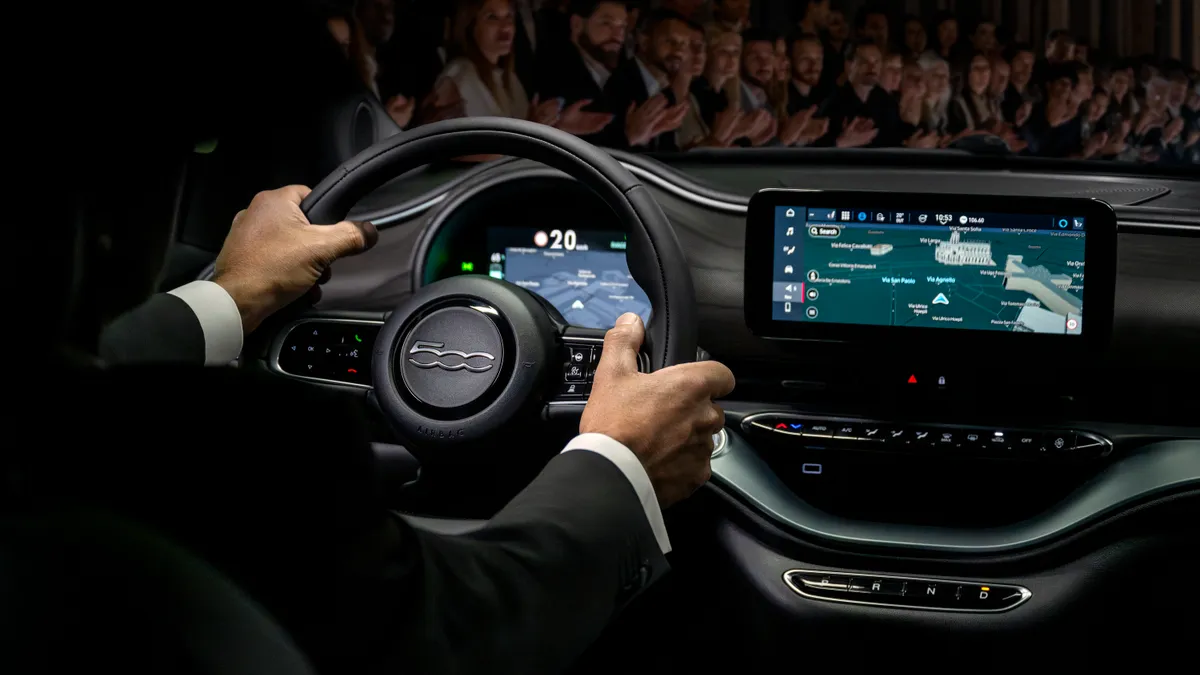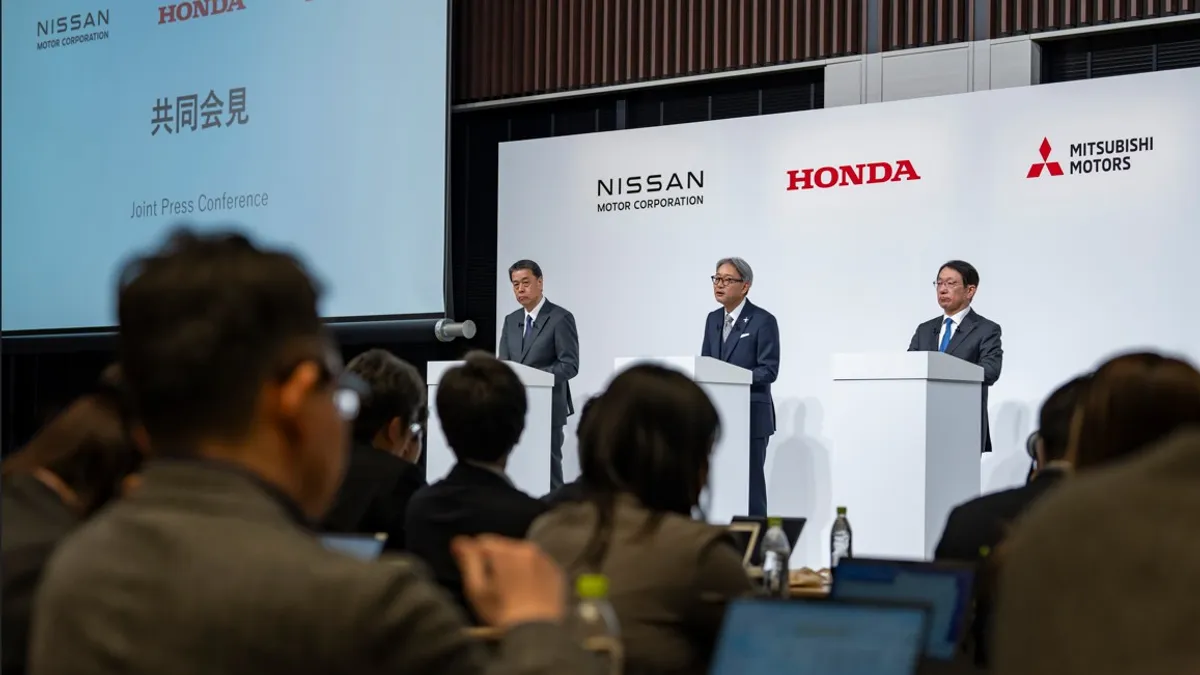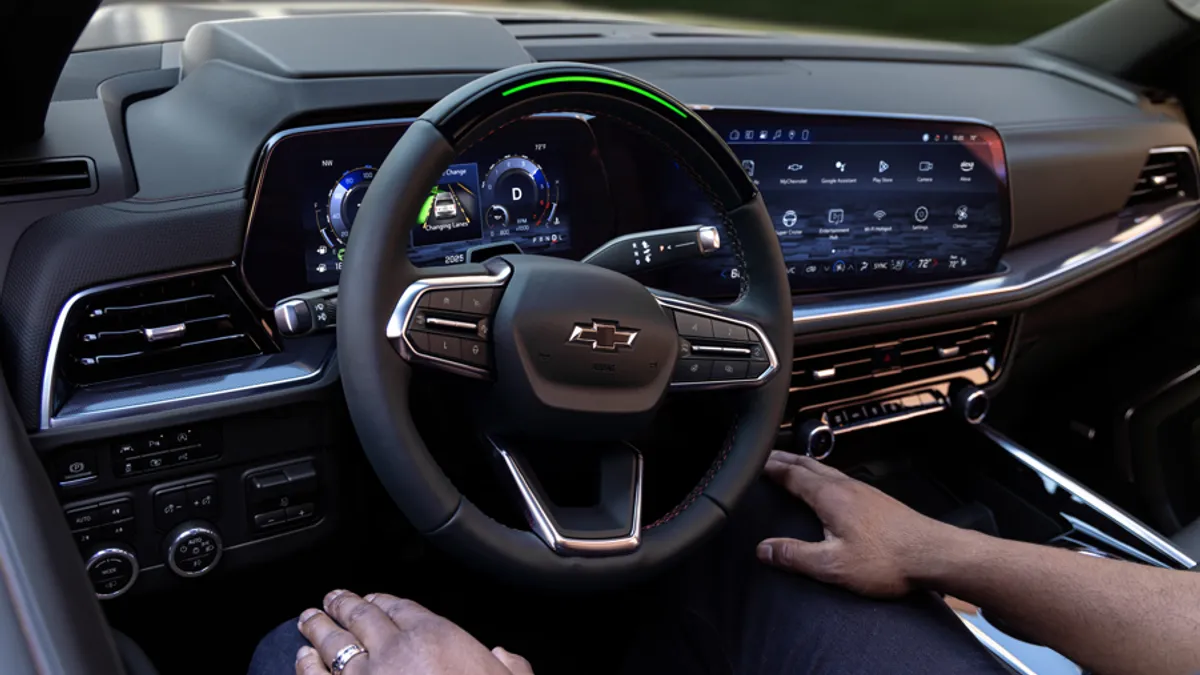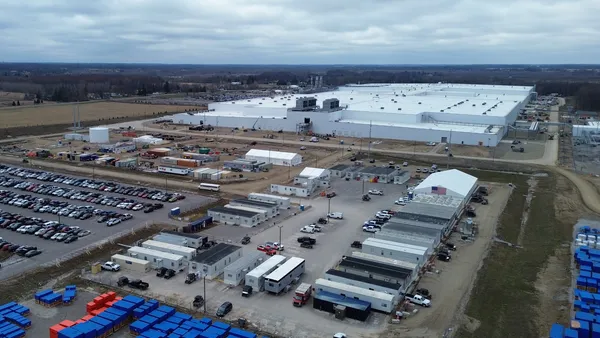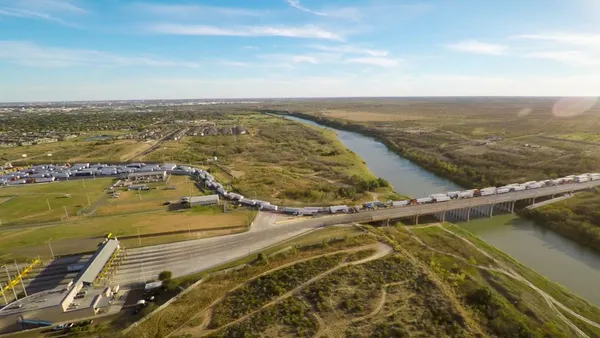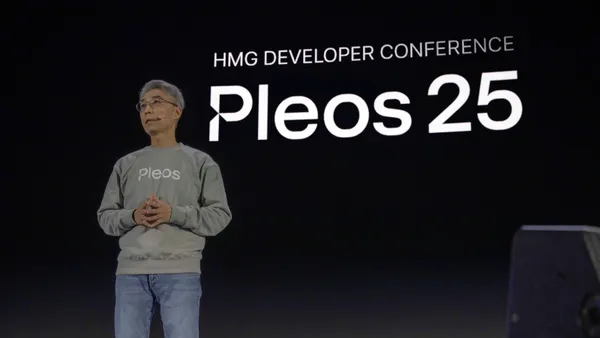Dive Brief:
- Stellantis is strengthening its collaboration with France-based technology startup Mistral AI to deploy advanced artificial intelligence technologies across vehicles, engineering and manufacturing, the automaker announced in a press release on Feb. 7.
- Among the projects, Stellantis and Mistral AI are collaborating on an in-vehicle assistant that supports natural conversational interactions, while also serving as an interactive user manual for the vehicle. It will be continuously updated and adaptable across Stellantis’ brands and vehicle models.
- The rollout of more robust generative AI across various industries was spurred by the demo launch of Chat GPT in November 2022, which was viewed as a major breakthrough. The rapid advancements in AI are now poised to transform the auto industry, making vehicles more interactive and helping carmakers boost efficiency across many areas of their operations.
Dive Insight:
Stellantis says it’s been working closely with Mistral AI for over a year on various technology projects, including fleet data analysis and sales. Among the initiatives, the startup’s expertise in large language models (LLMs) is helping the automaker analyze large data sets to improve manufacturing quality, reduce development times and enhance customer satisfaction.
“This partnership is an important step in our commitment to making GenAI more accessible and valuable,” said Arthur Mensch, Mistral AI CEO and co-founder in the release.
The AI-powered assistant will enable Stellantis customers to ask questions about vehicle features and receive immediate guidance through conversational interaction. Answers may include what warning indicators mean, or how to troubleshoot a vehicle issue.
Stellantis also launched a chatbot for employees in France called the “Club Stellantis Virtual Assistant” that helps with the purchase of company vehicles. The assistant supports voice queries in multiple languages, which Stellantis says is key for its planned rollout across Europe.
Outside of the in-vehicle technology, Stellantis is working with Mistral AI to develop “bill of materials data intelligence” which employs AI to streamline the analysis of complex component databases, according to the release. For example, a chatbot powered by Mistral AI’s technology is helping Stellantis engineers determine the best part selections to maximize reuse and efficiency, according to the release.
Mistral AI is also providing Stellantis with vehicle feedback analysis, using AI to process data from the automaker’s development fleets to improve vehicle quality by quickly identifying potential problems.
Stellantis says it’s assessing Mistral AI’s edge computing models to detect manufacturing errors in real-time and take corrective action before any components are installed in vehicles on the assembly line.
“There are many players in the AI space, and we’re particularly happy to partner with Mistral AI for its strong ability to adapt quickly and drive meaningful results in a highly collaborative way,” said Ned Curic, Stellantis chief engineering & technology officer, in the release. “Together, we are exploring AI’s potential across several domains to enhance our product development, customer experience and deliver real benefits.”
Other automakers are also working to integrate AI technology into their vehicles and operations, including Mercedes-Benz and the Volkswagen Group. In June 2023, Mercedes-Benz became the first automaker to integrate a demo version of ChatGPT into its MBUX voice assistant.
At CES in Jan. 2024, Volkswagen demonstrated its own AI-powered in-vehicle voice assistant for the ID.7 electric sedan developed in partnership with software company Cerence. It uses generative AI to enable drivers and passengers to control vehicle functions using their voice.
Last September, Volkswagen announced it was deploying Google’s generative AI capabilities in its vehicle owners app to provide smoother access to important information.



